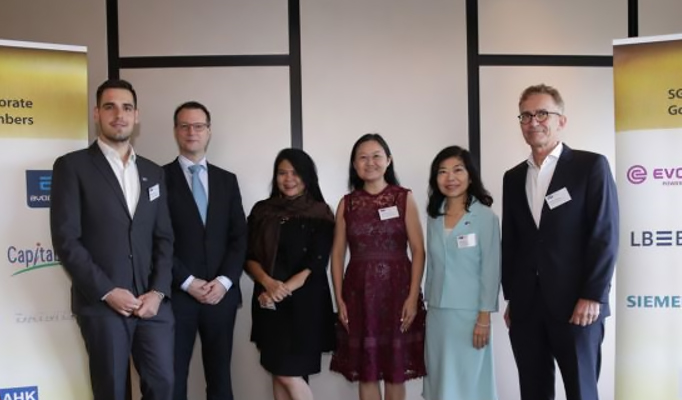Its director and chief scientist, Dr Ong Siew Hwa, highlighted the benefits that can come from the trade agreement's promotion of international regulatory standards and guidelines.
She said having standardised and harmonised regulations helps firms in the two jurisdictions better collaborate and transfer products such as medical devices and diagnostic tools, which are highly regulated.
Acumen Research Laboratories is among 92 German and Singapore companies which took part in a survey conducted by the Singaporean-German Chamber of Industry and Commerce (SGC) between September and November last year, before the FTA kicked in on Nov 21.
The results of the survey were published yesterday.
The survey sought feedback on the potential impact of the EU-Singapore trade pact on German and Singapore businesses and how the agreement could strengthen bilateral ties.
Bilateral trade between Germany and Singapore was about €14.6 billion (S$22.1 billion) in 2018.
Germany is Singapore's largest trading partner in the EU and the Republic is Germany's largest trading partner in South-east Asia.
About 59 per cent of the companies polled said the EU-Singapore FTA will improve their export performance, while 46 per cent said the trade pact will help a lot in overcoming trade barriers.
Some 31 per cent of respondents said the greatest barrier to trade between Germany and Singapore was the divergence of standards and regulations.
Other key barriers highlighted in the survey findings were the marking, labelling and packaging requirements (cited by 27 per cent of respondents) and tariffs (26 per cent).
Ms Jocelyn Chng, managing director of Sin Hwa Dee Foodstuff Industries, said the food manufacturing sector has benefited from direct tariff savings arising from the FTA.
She said tariffs for sauces and condiments exported globally could be as high as 20 per cent, but after the EU-Singapore trade pact kicked in, the tariffs on soya sauce have been reduced from 7.7 per cent to 5.6 per cent.
Dr Tim Philippi, executive director of the SGC, said: "The EU-Singapore FTA clearly caters to the needs of the German and Singapore business community, and is therefore not only a political agreement, but also one with concrete business implications."
CREDIT: Choo Yun Ting
Copyright © 2020 Singapore Press Holdings
This article was written by Yun Choo from The Straits Times and was legally licensed through the NewsCred publisher network. Please direct all licensing questions to legal@newscred.com.







